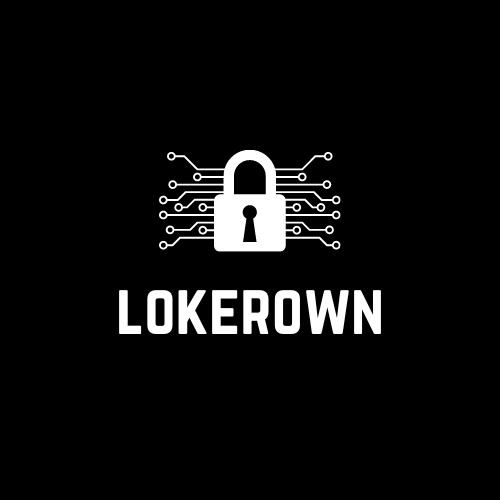In today’s digital age, cryptocurrencies have become a prevalent means of investment and exchange. Among these digital currencies, Bitcoin (BTC) is a pioneer and a popular choice for investors worldwide.
However, navigating the exchange process can be complex for those looking to convert their Bitcoin holdings into traditional currencies like the Australian Dollar (AUD). In this article, we’ll explore strategies to master the effective conversion of BTC to AUD.
Understanding The Exchange Process
Converting BTC to AUD involves utilizing cryptocurrency exchange, which are platforms that facilitate the buying, selling, and trading of digital currencies. These exchanges act as intermediaries, matching buyers with sellers and executing transactions.
It’s essential to choose a reputable exchange with a user-friendly interface and robust security measures to ensure the safety of your funds.
Choosing The Right Exchange
When selecting an exchange for BTC to AUD conversion, consider factors such as fees, liquidity, security, and user experience. Popular exchanges like Coinbase, Binance, and Kraken offer BTC to AUD trading pairs, providing advanced trading features for experienced investors.
Additionally, ensure that the exchange complies with regulatory standards and adheres to know-your-customer (KYC) and anti-money laundering (AML) regulations.
Monitoring Market Trends
Successful conversion of BTC to AUD requires monitoring market trends and identifying opportune moments to execute trades.
Cryptocurrency markets are highly volatile, with prices fluctuating rapidly based on factors such as demand, investor sentiment, regulatory developments, and macroeconomic indicators.
Utilize technical analysis tools and stay informed about news events that may impact the price of Bitcoin and the Australian Dollar.
Timing Your Trades
Timing plays a crucial role in maximizing the value of your BTC holdings when converting to AUD. Consider factors such as price trends, trading volume, and market sentiment before initiating a trade.
Buying BTC when prices are low and selling when they are high can result in higher returns. However, predicting market movements accurately is challenging, so conducting thorough research and exercising caution when timing your trades is essential.
Managing Risk
Like any investment, converting BTC to AUD carries inherent risks. Volatility in cryptocurrency markets can lead to significant price swings, potentially resulting in investor losses.
To mitigate risk, consider employing dollar-cost averaging (DCA) strategies, diversification, and setting stop-loss orders.
DCA involves investing a fixed amount of money at regular intervals, reducing the impact of market fluctuations on your overall investment.
Tax Implications
It’s crucial to understand the tax implications of converting BTC to AUD and ensure compliance with relevant tax laws. The Australian Taxation Office (ATO) treats cryptocurrencies as property for tax purposes in Australia.
Capital gains tax (CGT) may apply to profits made from the sale or exchange of cryptocurrencies, including Bitcoin.
Keep detailed records of your transactions and consult with a tax professional to understand your tax obligations accurately.
Securing Your Funds
Security is paramount when converting BTC to AUD or engaging in any cryptocurrency-related activities. Use secure wallets to safeguard your funds, enable two-factor authentication (2FA), and practise good cybersecurity hygiene.
Avoid keeping large amounts of BTC in exchanges, and consider using hardware wallets or cold storage solutions for long-term storage of your digital assets.
Staying Informed
The cryptocurrency landscape constantly evolves, with new developments, innovations, and regulatory changes shaping the market.
Stay informed by following reputable sources of information such as cryptocurrency news websites, forums, and social media channels.
Engage with the community, participate in discussions, and continuously educate yourself to make informed decisions when converting BTC to AUD.
Exploring Alternative Conversion Methods
In addition to traditional cryptocurrency exchanges, explore alternative methods for converting BTC to AUD, such as peer-to-peer (P2P) platforms, over-the-counter (OTC) desks, and decentralized finance (DeFi) protocols.
P2P platforms connect buyers and sellers directly, allowing for greater flexibility and potentially lower fees. OTC desks are designed for institutional investors and high net worth individuals in search of high volume trading with personalized service.
DeFi protocols enable trustless and permissionless trading of digital assets through smart contracts, providing opportunities for decentralized trading and yield generation.
Seeking Professional Advice
For investors unfamiliar with the intricacies of cryptocurrency trading and taxation, seeking professional advice from financial advisors, Henley Accountants, or legal experts can provide valuable guidance.
A knowledgeable advisor can help assess your investment goals, risk tolerance, and tax situation, offering personalized recommendations and strategies tailored to your needs.
Whether you’re a novice investor or an experienced trader, consulting with experts can help you navigate the complexities of BTC to AUD conversion and ensure compliance with regulatory requirements.
Conclusion
Mastering the exchange process for BTC to AUD conversion requires careful planning, strategic decision-making, and a solid understanding of cryptocurrency markets.
By choosing the right exchange, monitoring market trends, timing your trades effectively, managing risk, understanding tax implications, securing your funds, and staying informed, you can confidently navigate the conversion process and maximize the value of your Bitcoin.
Remember to conduct thorough research, exercise caution, and seek professional advice when necessary to achieve successful outcomes in your cryptocurrency journey.
At Elbaite, we’re committed to empowering your cryptocurrency journey. Whether you’re a seasoned trader or just venturing into the world of digital assets, our platform offers a user-friendly interface, robust security features, and a wealth of resources to support your conversion needs.





